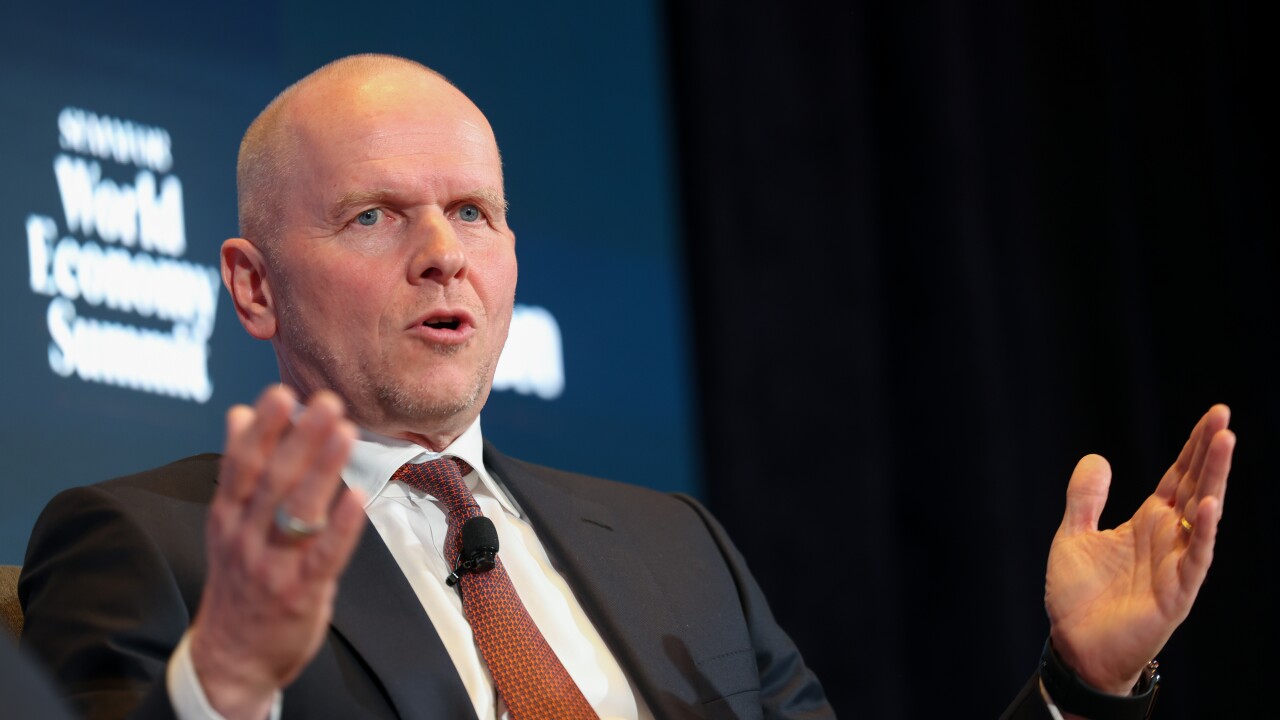Rohit Chopra, the director of the Consumer Financial Protection Bureau, has launched a broad review of fees charged by banks, credit unions, mortgage lenders and fintechs as part of an effort to spur more competition for financial services.
Chopra said Wednesday that in many cases total fees exceeded the financial institutions' cost of providing the underlying service, an indication that companies aren't just passing on costs to consumers but are taking advantage of a captive relationship to increase profits.

Chopra specifically called out banks for collecting billions in revenue each year by charging so-called “junk fees” that include penalties for late payments, nonsufficient funds and account maintenance.
“Large banks haul in huge sums in fees from retail customers,” Chopra said on a call with reporters. “When markets become dependent on these back-end fees, it makes it harder for families to realize the benefits of competition. Today with our request for public comment on junk fees, we are beginning the process of breaking banks’ reliance on these exploitative income streams and making prices and features clear upfront.”
The CFPB cited its own research from 2019 that found major credit card issuers charged more than $14 billion in
“When buying a home there’s a whole host of charges at closing where borrowers just feel gouged,” he told reporters.
The American Bankers Association, Bank Policy Institute, Credit Union National Association and five other trade groups called the CFPB's request "a misguided effort that paints a distorted and misleading picture" of the market.
The groups cited multiple federal laws and the CFPB's own rules that "already require banks, credit unions and other providers of consumer financial services to disclose terms and fees in a clear and conspicuous manner."
Richard Hunt, president and CEO of the Consumer Bankers Association, called the CFPB’s
“The bureau has a responsibility to communicate with clarity and precision — not with overblown rhetoric to attack one industry,” Hunt said in a press release.
He also pushed back against Chopra’s allegations that banks rely heavily on fees to boost their income, countering that overdraft fees made up less than 2% of banks’ overall revenue in 2019.
Banks and credit card issuers are required to abide by the Credit Card Accountability Responsibility and Disclosure Act, a 2009 law that put caps on late fees and other charges. Fintechs, however, are not subject to the same standards as banks, Hunt said.
The CFPB has broad authority under the Dodd-Frank Act to pursue enforcement actions against financial firms that engage in unfair, deceptive and abusive acts and practices, known as UDAAP violations. The bureau also has broad authority under its enabling statutes to ensure markets are "fair, transparent and competitive," according to the act.
Chopra said the CFPB plans to use the information it collects from the public in its normal supervisory and enforcement work to identify financial institutions that may be engaged in illegal practices. The information also will be used to issue rules and guidance.
The bureau plans to review the 19 statutes it inherited at its inception from the Federal Reserve Board to determine if any changes need to be made, Chopra said. The bureau also will be coordinating its efforts with other regulators, a senior CFPB official told reporters.
In addition, the CFPB hopes to learn what fees are being charged by new market entrants that will help inform an
Jenny Lee, a partner at Arent Fox and former CFPB enforcement attorney, said the bureau could file an enforcement action based on the size of a fee, how it is communicated or collected.
“This would cover banks and nonbanks including buy now/pay later products and novel forms of credit from fintechs,” Lee said. “This is very broad covering any kind of consumer finance product including student lending, mobile apps, mortgage banks and brokers.”
She said the CFPB also has authority at the federal level to take action under the Truth in Lending Act, the Electronic Fund Transfer Act and Fair Debt Collection Practices Act.
“There are multiple outcomes that may arise out of this effort including rulemaking, enforcement, public guidance, bulletins and further market research,” Lee said.
Lucy Morris, a partner and chair of government investigations and enforcement at the law firm Hudson Cook, said that many of the charges that Chopra referred to as “junk fees” actually are contractual fees that a consumer agrees to when signing up for a financial product or service.
“Chopra is really focusing on the competition issue and using the bully pulpit to spur competition," Morris said. "In the past the CFPB might bring claims to address illegal practices, but I don’t know if these practices are illegal or junk fees. He’s trying to get the market to make pricing more transparent and clear so consumers can shop and compare.”
The CBA's Hunt took issue with Chopra’s view that banks are not competitive, given that there are nearly 5,000 banks in the U.S. He suggested the CFPB partner with banks rather than attack them.
“The bureau should be focused on seeking feedback from and working in tandem with banks — the very people on the front lines interacting with customers everyday — to recognize the value these products and services have in the lives of the people we are all working to serve,” Hunt said.
Besides late fees, overdraft and nonsufficient funds fees, the CFPB's request for information listed a smorgasbord of other charges, including ATM, ACH transfer, balance-inquiry, card cancellation, cash reload, check image and inactivity fees.
Public comment on the request for information is open until March 31.




